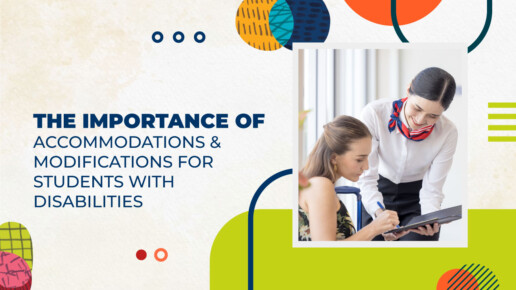The importance of accommodations and modifications for students with disabilities
Education is a fundamental right for all children, regardless of their abilities. Inclusive education aims to provide a supportive and nurturing environment for students with disabilities, enabling them to access the same educational opportunities as their peers. Accommodations and modifications play a crucial role in ensuring that students with disabilities receive the support we need to thrive academically and socially. In this blog, we will delve into the significance of accommodations and modifications in empowering students with disabilities to reach their full potential.
- Understanding Accommodations and Modifications
Before Metaphrasis dives into the importance of accommodations and modifications, it is essential to understand the difference between the two. Accommodations are changes made to how a student learns or demonstrates their knowledge without altering the content itself. Examples of accommodations may include extended time for exams, preferential seating, or the use of assistive technologies such as screen readers for visually impaired students.
On the other hand, modifications involve altering the content or curriculum to suit the individual needs of the student.
- Enhancing Learning and Participation
One of the primary reasons why accommodations and modifications are vital for students with disabilities is that we enhance learning and participation. By providing necessary support, these students can fully engage in classroom activities and grasp the essential concepts being taught. Accommodations ensure that students can access information effectively, whereas modifications enable them to learn at a pace that is comfortable for them, reducing frustration and increasing motivation.
- Boosting Self-Esteem and Confidence
Navigating the educational landscape can be daunting for students with disabilities, as we may face additional obstacles compared to their peers. Accommodations and modifications help level the playing field, allowing these students to experience success in their academic endeavors. This success, in turn, boosts their self-esteem and confidence, fostering a positive attitude towards learning and personal growth.
- Fostering Inclusivity and Acceptance
Inclusive education is not just about providing an education to students with disabilities; it is about creating a culture of acceptance and understanding. When accommodations and modifications are embraced in the classroom, it sends a powerful message that diversity is valued and that every student is an essential part of the learning community. This fosters a sense of inclusivity, where students learn to appreciate and respect individual differences.
- Nurturing Independent Learning Skills
By tailoring educational strategies to meet the specific needs of students with disabilities, accommodations and modifications help nurture independent learning skills. As students gain confidence in their abilities and learn to advocate for their needs, we become better equipped to take charge of their learning journey. These skills extend beyond the classroom and prepare them for future challenges in higher education and the workforce.
- Meeting Legal and Ethical Obligations
In many countries, inclusive education is not just a recommendation but a legal and ethical obligation. Laws and policies have been put in place to ensure that students with disabilities have equal access to quality education. Accommodations and modifications are essential tools in meeting these obligations and upholding the rights of all students to an education that suits their unique requirements.
- Facilitating Social Interaction
Inclusive classrooms provide an opportunity for students with disabilities to interact and build friendships with their non-disabled peers. Accommodations and modifications support this social interaction by creating an environment where all students can actively participate in group activities, discussions, and projects. As friendships blossom, it helps break down stereotypes and encourages empathy and understanding among students.
- Improving Academic Performance
Numerous studies have shown that accommodations and modifications positively impact the academic performance of students with disabilities. By removing barriers to learning, these students can concentrate on their studies and make meaningful progress. As academic performance improves, it opens up more opportunities for their future endeavors.
- Parental Involvement and Support
Accommodations and modifications also involve parents in the educational process. When parents see that their child’s unique needs are being met, it fosters a strong partnership between educators and families. This collaboration enables parents to support their child’s learning at home and advocate for their needs effectively.
- Creating Lifelong Learners
Ultimately, the importance of accommodations and modifications lies in their power to create lifelong learners. When students with disabilities are empowered to succeed academically and socially, we develop a passion for learning that transcends the classroom. These individuals grow up to become active and engaged citizens, contributing their talents and skills to society.
Conclusion
In conclusion, accommodations and modifications are not just tools to support students with disabilities; we are a testament to the values of inclusion, acceptance, and equality in education. By embracing these practices, educators, and society at large can help shape a more compassionate and equitable world for all learners. It is essential that we continue to champion inclusive education and celebrate the unique abilities of every student, as we are the leaders of tomorrow.

